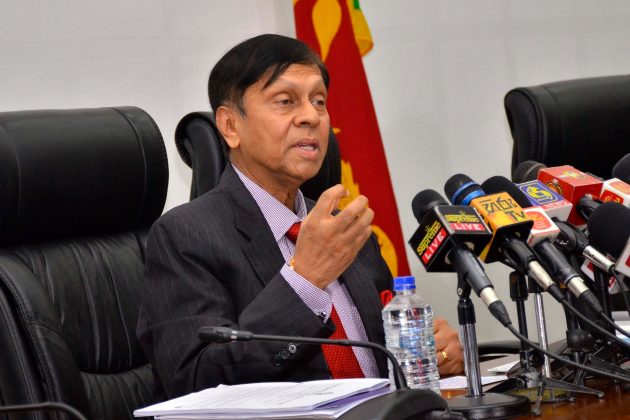State Minister of Money, Capital Markets and State Enterprise Reforms Ajith Nivard Cabraal told Parliament on Wednesday that the downgrade of Sri Lanka’s rating by Fitch rating was based on ill-informed model projections without any evidence-based and objective analysis.
Responding to a question raised by Leader of the Opposition Sajith Premadasa in the House, Cabraal also said that in its assessment, Fitch Ratings had ignored several key proposals presented in the Government Budget for 2021 with regard to debt financing in the period ahead.
“As indicated in the Budget 2021, the Government has adopted a novel approach in relation to foreign financing while enhancing the effectiveness of already-secured financing channels aimed at reducing the share of foreign financing and the budget deficit over the medium term,” Cabraal said.
He said the Government had inherited a hugely-skewed situation with regard to foreign debt from the previous administration, but it must deal with it.
“Fitch Ratings built up an argument based on the existing financial model, thus adopting a backward-looking approach. In contrast the forward-looking financing model of the Government, which is skewed heavily towards domestic financing, will capitalise on the benefits of increased domestic savings and the low interest rates regime already in place given the subdued aggregate demand conditions and well-anchored inflation expectations,” he said.
Cabraal also said it was also noteworthy that the low interest rate regime would improve the economic growth prospects in the period ahead alongside the incentives being offered for capital investment, thereby supporting the envisaged debt consideration efforts significantly.
“As a relative share of outstanding foreign debt has already fallen to 44% as per the latest available data, projecting a rise in foreign debt servicing obligations in the period ahead cannot be corroborated with facts. Based on such unfounded assumptions, Fitch Ratings projects a debt to GDP ratio of 100% at the end of 2021 and 116% at the end of 2024, which grossly overestimates the budget deficit at around 11.5% of GDP in 2021 and 2022. Our estimates are completely different to that and we don’t agree with these estimates,” Cabraal pointed out.
He said it was unrealistic to expect the Government to take a rigid expenditure path if by any chance the expected improvement to revenue did not materialise. “As with any responsible government, if there is any risk of revenues not materialising, we can take other measures to deal with that situation,” State Minister Cabraal added.
(FT)

